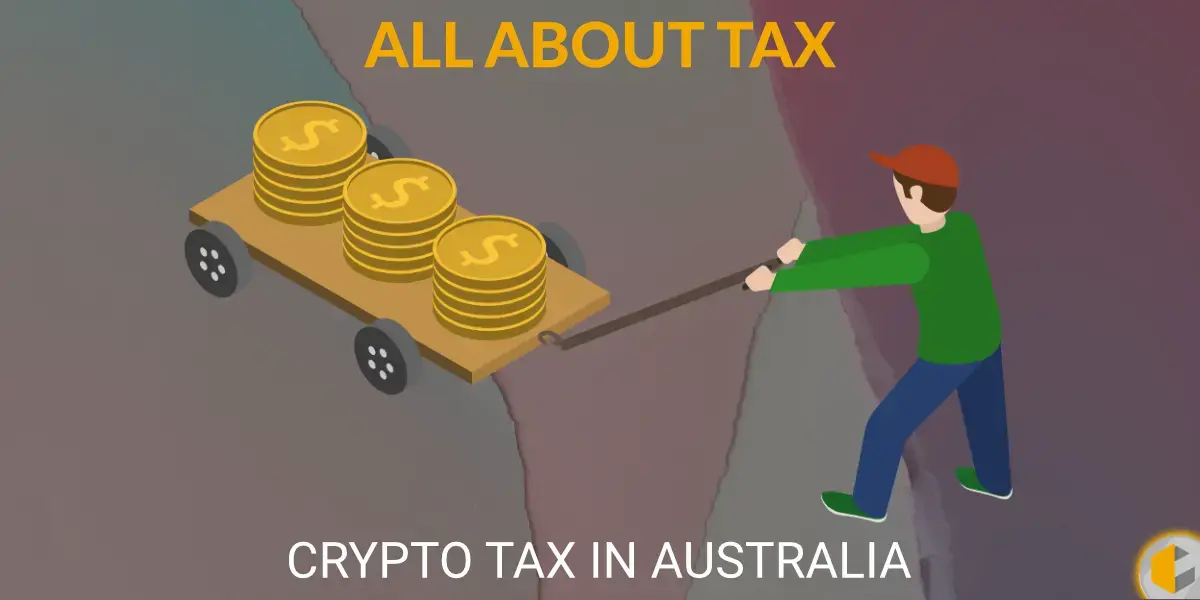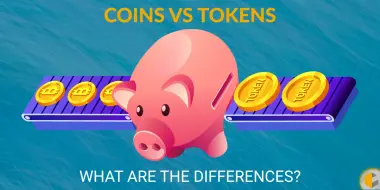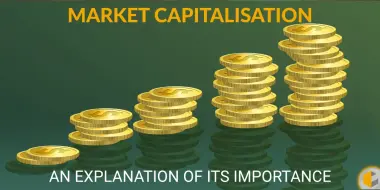
Tax season is just around the corner and a lot of people are still scratching their heads wondering how the tax man considers crypto. This is not in any way legal or financial advice, but just some points I want to raise that might help you when it comes to getting your crypto books in order and start a conversation with your accountant!
With the crypto-sphere rapidly evolving, the government is still trying to catch up with how to regulate the space. The regulations currently reference ‘cryptocurrency’ as Bitcoin but also “any other crypto or digital currencies that have the same characteristics as Bitcoin”. While we could debate the many and varied differences between Bitcoin and all other coins but for the purpose of taxes I don’t think the tax office will entertain these differences.
Classification of Cryptocurrency
The Australian Government considers cryptocurrency as a property asset rather than a form of currency. This means that disposal of a crypto asset is subject to Capital Gains Tax (CGT). A capital gain is added to your taxable income and you will pay tax according to the relevant marginal rate. Exceptions apply for ‘personal use assets’ (more below) or if you are a operating as a business. A capital loss can be carried forward to offset future gains but cannot be used to offset other incomes.
The good news is that as a property asset, if you hold it for longer than 12 months you are entitled to a 50% CGT discount and – for the HODLers – you do not pay tax on unrealised gains.
More on CGT here
Crypto to Crypto Trades
I have heard a lot of people say that you do not have to pay the CGT if you move crypto to another crypto (i.e. Ethereum to Neo) however everything that I have read says that each time there is a movement in/out of your portfolio, it will create a taxable event and attract a capital gain or loss. It is classified as you selling one asset and then buying another.
For example, trading 1 ETH for 20 NEO is tracked as SELL 1 ETH and then BUY 20 NEO. You would pay tax on the ETH disposal and then only on the NEO when a gain (or loss) is realized via a subsequent sale.
Reporting requirements
For every cryptocurrency transaction you need to record:
- Date of transaction
- Value of the cryptocurrency in \$AUD at time of transaction. Needs to come from a “reputable online exchange”
- Reason for transaction and other party (crypto address is sufficient)
A taxable event then occurs when a cryptocurrency is sold (a disposal) and though I haven’t seen anything concrete to confirm, I use a First-in First-out (FIFO) calculation method for the CGT event. This is a lot of work and documentation that I believe many people (including me) initially did not realise. There are some tools out there to help with the tracking of your transactions. I raised cointracking.info in a March article but if you are using other resources that have helped you, please let me know.
Personal Use Exemption
In order to claim the ‘personal use asset’ exemption for CGT purposes, you need to prove you have purchased your cryptocurrency for the personal use or enjoyment of you or your associates. As most people are buying crypto for investment or trading purposes, this may be difficult to prove. Unfortunately, buying a coffee with your crypto on 30th June probably won’t count!
Mining Coins
The tax implications for mining depend if you are mining as an individual or business. Here is a paragraph from the ATO that summarises things nicely:
As a miner carrying on a business any bitcoin that you acquire from mining is treated as ‘trading stock’. As in any other business, proceeds from the disposal of trading stock represent assessable income. Also, even if you don’t dispose of your bitcoin, an increase in the total of your trading stock value at the end of the year from any amounts at the start of the year is treated as assessable income, (while a decrease is treated as an allowable deduction). This is also referred to as ‘bringing your trading stock to account’ at the end of the year.
Advantages of mining as a business include be able to claim deductibles and potential eligibility for a \$20,000 instant asset write-off. Though only Bitcoin is mentioned, this would apply to any mining of cryptocurrencies.
Final Thoughts
Talk to a registered accountant who has some knowledge of cryptocurrency. They will tell you the best way to declare everything within Australian Tax Law and get the best outcome whilst protecting yourself. Yes, you will pay for this advice (tax deductible) but my opinion is that it pays for itself. They can help set up a trust or other business structure if you do need.
If you have specific tax questions and cannot find help, the ATO offers Private Rulings. A private ruling is binding advice that sets out how a tax law applies to you in relation to a specific scheme or circumstance. Note the word ‘binding’.
Keep accurate and clear records. It will save you a lot of headaches and give you an idea of where you stand tax-wise. Bear in mind the nature of an immutable blockchain; the record will always be there, don’t let it come back to bite you.
Crypto Coin Disclosure
No payment or private consultation was sought for this article. The opinions expressed are that of the writer and should not be taken as specific financial, trading, legal, personal or investment advice. Consider your personal circumstances and the associated risks before investing. Consult a licenced professional accountant for all tax related questions.
Senior Contributor
Related Posts






Subscribe to our newsletter!
Information




